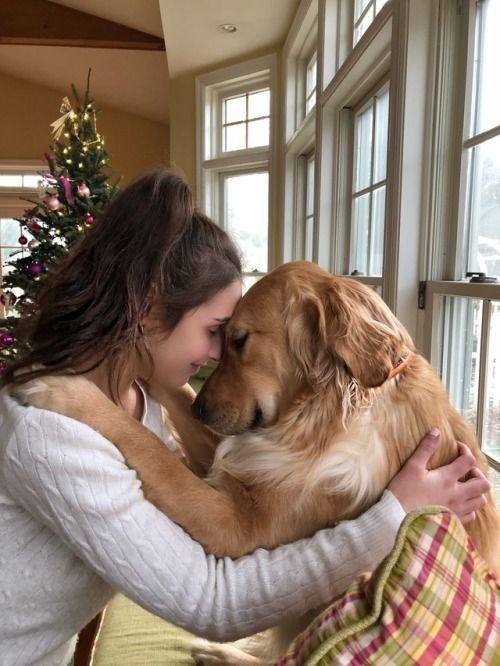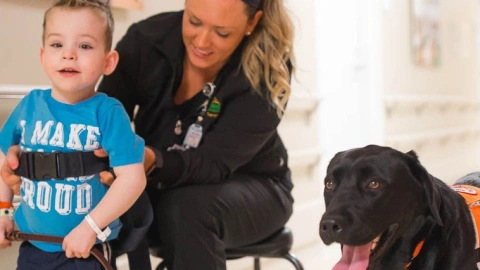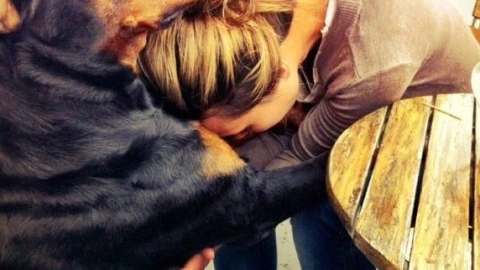Dog / Detail
Understanding Your Dog's Mood: A Playful Guide
Jonathan Bennet | 04 September 2024 | 16:05
Dogs, with their wagging tails and joyful barks, often seem to radiate happiness. However, beneath their playful exterior lies a complex emotional landscape that can sometimes be clouded by sadness or frustration.
As a loving pet owner, it's essential to recognize these subtle cues to ensure your furry friend's well-being.

When your dog is brimming with energy and enthusiasm, it's a clear sign of a happy mood. Look for these telltale signs of playfulness:
- Tail wagging: A vigorous tail wag, especially when combined with a joyful bark, is a classic indicator of contentment.
- Leaping and bounding: Dogs often express their excitement through energetic leaps and bounds.
- Playful nips and bites: Gentle nipping or biting during play is a normal part of canine social interaction.
- Eye contact: Happy dogs tend to maintain steady but gentle eye contact with their humans.

While dogs are masters at hiding their emotions, subtle changes in behavior can signal that something is amiss. Be attentive to these signs of sadness:
- Lethargy: A sudden decrease in energy levels can be a sign of depression or illness.
- Loss of appetite: If your dog is no longer interested in their food, it could be a symptom of sadness or a medical issue.
- Excessive sleeping: While dogs need their rest, excessive sleepiness can be a cause for concern.
- Withdrawal: If your dog is becoming increasingly withdrawn or disinterested in activities they once enjoyed, it might be a sign of sadness or anxiety.
- Vocalization: Excessive whining, howling, or barking can sometimes indicate emotional distress.
Addressing Feeding Challenges
Feeding your dog is a crucial aspect of their care, but it can sometimes be met with challenges. Here are some common feeding issues and tips for addressing them:
- Picky eating: If your dog is refusing their food, try offering smaller portions or switching to a different brand. Consult your veterinarian to rule out any underlying health issues.
- Overeating: Obesity can lead to various health problems. Monitor your dog's portion sizes and provide plenty of exercise opportunities.
- Food aggression: If your dog becomes aggressive when eating, consult a professional trainer to help you manage this behavior.
- Allergies or sensitivities: Some dogs may have allergies or sensitivities to certain ingredients in their food. If you suspect this is the case, consult your veterinarian for guidance.

A strong bond with your dog can help them feel secure and loved, which can contribute to their overall well-being. Here are some tips for strengthening your relationship:
- Spend quality time together: Engage in activities that your dog enjoys, such as playing fetch, going for walks, or cuddling on the couch.
- Provide positive reinforcement: Reward your dog's good behavior with praise, treats, or affection.
- Be patient and understanding: Dogs, like humans, may experience emotional ups and downs. Be patient and understanding, and offer them the support they need.
By paying attention to your dog's moods and addressing their needs, you can help them live a happy and healthy life. Remember, a loving and attentive owner is the best gift you can give your furry friend.
Related
-

The Healing Power of Dogs: How Canine Therapy is Revolutionizing Mental Health and Boosting Positive Energy in Humans
Dog14 November 2024
-

A Pawsitive History: Dogs of Nuremberg
Dog09 November 2024
-

The Role of Oxytocin in the Human-Dog Bond: The Science Behind Our Deep Connection
Dog06 November 2024
-

Beyond the Beach: Jamaica's Dog Lovers
Dog29 October 2024
-

A Dog's Delights: Homemade Snacks for Our Furry Babies, Recipes Included!
Dog29 October 2024
-

A Dog's Disorientation: Understanding Your Dogs' Wanderlust
Dog29 October 2024
Popular
-

-

A Pawsitive History: Dogs of Nuremberg
09 November 2024 -

-

Beyond the Beach: Jamaica's Dog Lovers
29 October 2024 -
